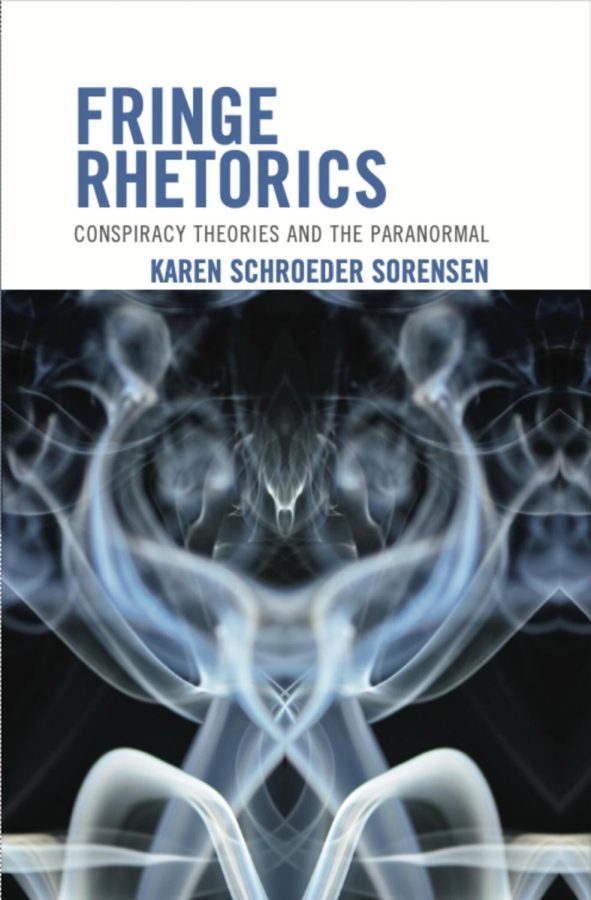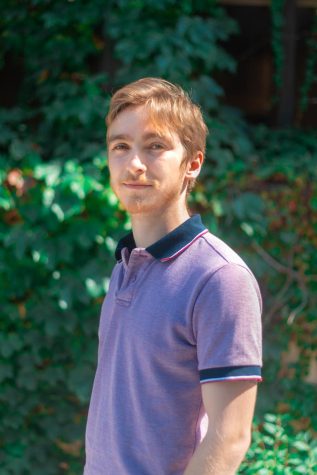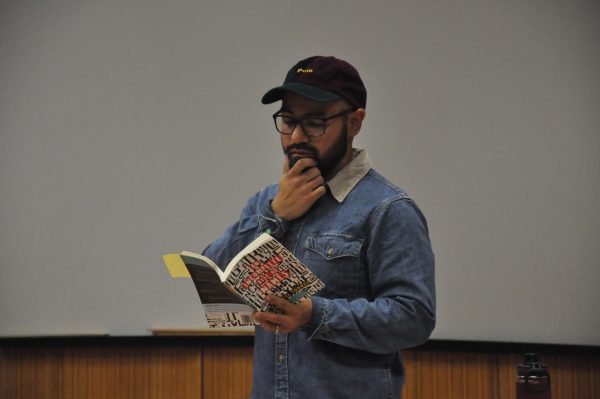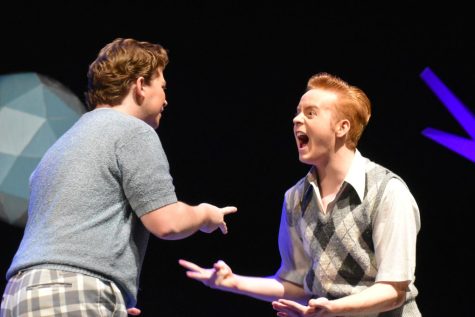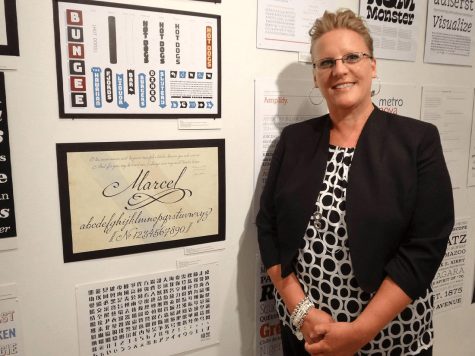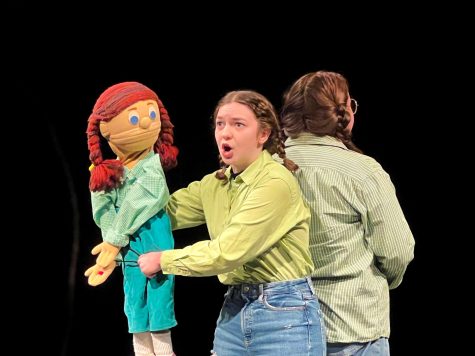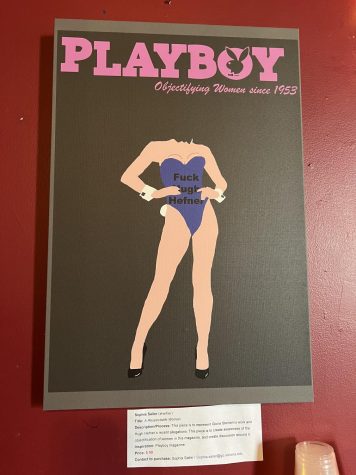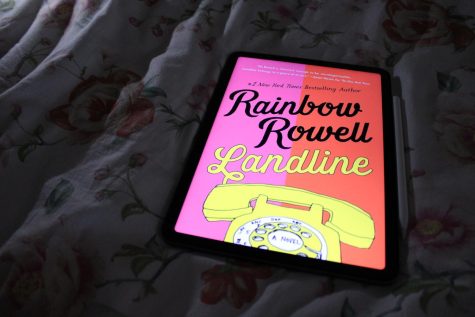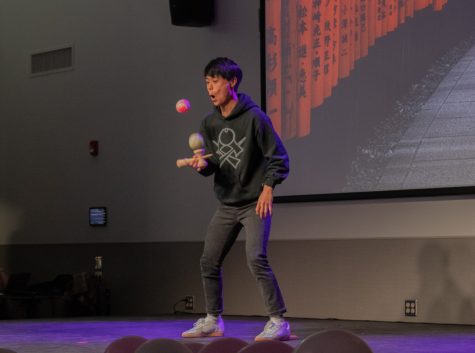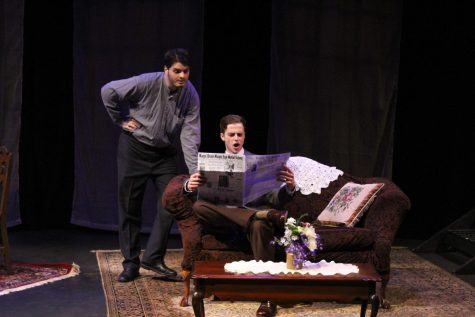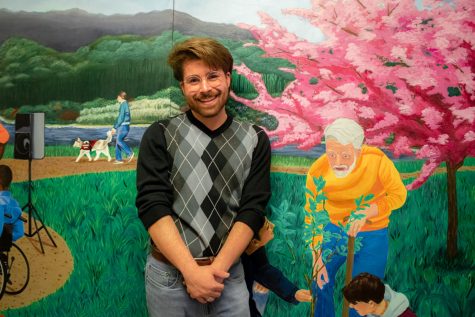English professor publishes book on conspiracies, paranormal
Associate English professor Karen Schroeder’s newly published second book, “Fringe Rhetorics: Conspiracy Theories and the Paranormal”.
January 26, 2022
Karen Schroeder, an associate professor in Winona State University’s English department since 2016, recently published her second book continuing her research into rhetoric.
Titled, “Fringe Rhetorics: Conspiracy Theories and the Paranormal”, the book works to identify the common types of rhetoric and argumentation used both in conspiracy and paranormal discussions. Then through identifying the rhetorical arguments, working to provide ways to dispute them.
Schroeder’s interest in conspiracy and the paranormal dates back to her childhood in the 1970s when those things were huge. Schroeder cited “In Search Of” with Leonard Nimoy, Bigfoot, the JFK assassination conspiracy and Area 51 all as examples that showed how impactful and important conspiracy and the paranormal were at that time.
“So, I started thinking about how those kinds of programs and texts try to prove their cases and prove their point and I started noticing similarities,” Schroeder said.
Schroeder identified three common argumentation tactics for conspiracy theories and the paranormal. These include: illusionary pattern identification, that is the identification of patterns where they may not be present; bias confirmation, the seeking out of information that agrees with one’s bias; and disregarding conflicting information and clairvoyant agency detection, the assumption of knowledge of another’s motives or feelings.
Schroeder commented that stopping a person from believing in the paranormal or a conspiracy theory can be extremely difficult due to a few things.
“Because they are on the fringes, that brings with it a kind of camaraderie or fellowship that provides community for them and so that conspiracy theory becomes more important than the theory itself–it becomes part of their life,” Schroeder said.
Those who believe in conspiracies and the paranormal can also find respect, status or validation through being a part of that community. According to Schroeder, these feelings lead people to cling more tightly onto these fringe beliefs.
“If they’re proven false, then their group goes away, their identity goes away,” Schroeder said. “No matter what evidence you bring to it, there’s too much for people to lose by changing their minds.”
Dissuading someone of a conspiracy theory or the paranormal is like a Chinese finger trap. The harder one tries, the tighter they cling. Instead Schroeder lays out a few tips to calmly loosen the grip and set them free.
First, consider if the belief in a conspiracy theory or something paranormal is harming anyone. If not, maybe it is best to leave it alone. If they must be dissuaded, Schroeder urges people to come from a place of understanding and respect. It is important to identify one’s own biases and find common ground. Not only that, but it is important to provide emotional arguments.
“We try to refute conspiracy theories quite often with scientific data and it seems like that should be enough, but it’s not,” Schroeder said. “They don’t cling to these beliefs because of the evidence alone, they are clinging to them for some emotional reason.”
Schroeder also stressed the importance of entering a debate prepared. The person who believes in the conspiracy theory often has spent hours engrossed in their community and doing research about it so they will likely have lots of arguments to use, according to Schroeder.
“I think it’s important for us to look at how these arguments are made because that is going to eventually reveal how to refute them. I have a few ideas, but I definitely think there needs to be more work done in that area,” Schroeder said.
The field of conspiracy rhetoric analysis is still young, but given the popularity of conspiracy theory and the paranormal, it is safe to say that the field will continue to grow.























































